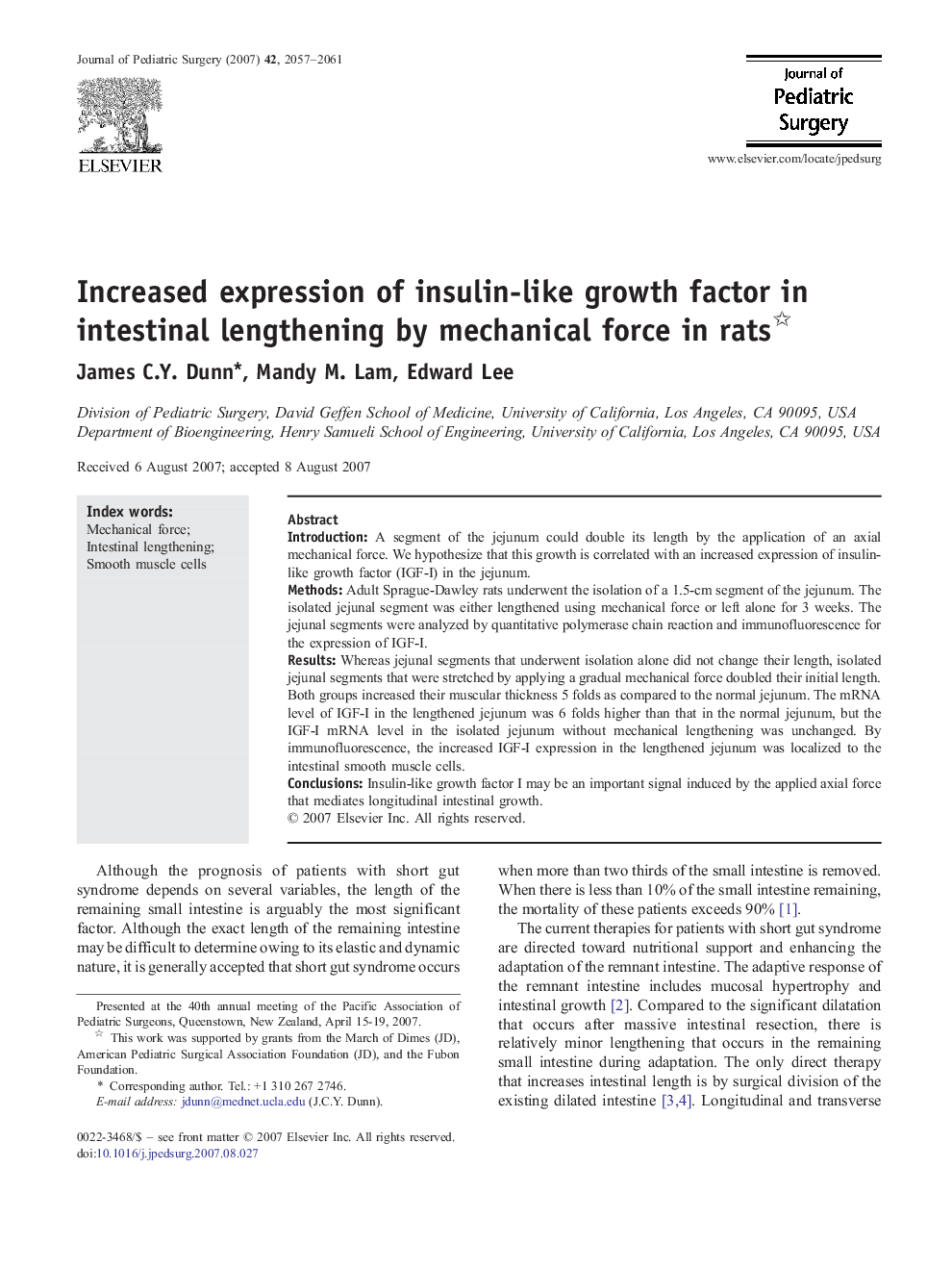| Article ID | Journal | Published Year | Pages | File Type |
|---|---|---|---|---|
| 4160002 | Journal of Pediatric Surgery | 2007 | 5 Pages |
IntroductionA segment of the jejunum could double its length by the application of an axial mechanical force. We hypothesize that this growth is correlated with an increased expression of insulin-like growth factor (IGF-I) in the jejunum.MethodsAdult Sprague-Dawley rats underwent the isolation of a 1.5-cm segment of the jejunum. The isolated jejunal segment was either lengthened using mechanical force or left alone for 3 weeks. The jejunal segments were analyzed by quantitative polymerase chain reaction and immunofluorescence for the expression of IGF-I.ResultsWhereas jejunal segments that underwent isolation alone did not change their length, isolated jejunal segments that were stretched by applying a gradual mechanical force doubled their initial length. Both groups increased their muscular thickness 5 folds as compared to the normal jejunum. The mRNA level of IGF-I in the lengthened jejunum was 6 folds higher than that in the normal jejunum, but the IGF-I mRNA level in the isolated jejunum without mechanical lengthening was unchanged. By immunofluorescence, the increased IGF-I expression in the lengthened jejunum was localized to the intestinal smooth muscle cells.ConclusionsInsulin-like growth factor I may be an important signal induced by the applied axial force that mediates longitudinal intestinal growth.
